Museu Nacional do Azulejo

The Museu Nacional do Azulejo in Lisbon is a captivating tribute to Portugal’s rich tradition of tile art. Housed in the 16th-century Madre de Deus Convent, the museum showcases a vast collection of azulejos, spanning from the 15th century to contemporary works. Visitors can explore intricate Moorish-influenced designs, baroque blue-and-white panels, and striking modern interpretations. One of the highlights is a 23-meter-long panoramic tile panel depicting Lisbon before the devastating 1755 earthquake. The museum’s stunning church, adorned with gilded woodwork and historic tile panels, adds to its charm. Beyond the exhibitions, the museum offers interactive displays and serene gardens featuring azulejo-adorned pathways. Located in eastern Lisbon, it is easily accessible by bus or taxi. Admission starts at €5, with discounts available for students and seniors. A visit to this museum provides a fascinating journey through Portugal’s artistic heritage, making it a must-see cultural destination.
Lisbon PortugalThe Museu Nacional do Azulejo, or National Tile Museum, is situated at Rua da Madre de Deus 4, in the eastern part of Lisbon, specifically in the Xabregas district, an area more industrial and less frequented by tourists compared to the city center. The museum is housed in the stunning former Madre de Deus Convent, founded in 1509 by Queen D. Leonor, and is recognized for its unique collection of Portuguese tiles that span from the 15th century to the present day. While the museum itself is a bit off the main tourist trail and not directly served by the metro, it is easily accessible by bus, with the number 759 stopping just outside the museum, connecting it to central sights like Restauradores Square and Santa Apolónia Station. Nearby, visitors can explore the lively and authentic Xabregas neighborhood, which offers a glimpse into local Lisbon life with its markets, small shops, and traditional restaurants. The area is not packed with major tourist attractions, but it is close to the Cemitério do Alto de São João, a historic and scenic cemetery, and within a reasonable distance from the National Pantheon and the vibrant Alfama district, both reachable with a short bus ride or a pleasant walk. The museum’s location also provides a quieter, more local experience, away from the crowds, making it ideal for those interested in authentic Lisbon culture and the city’s unique artistic heritage.
 National Museum of Ancient Art
Lisbon
National Museum of Ancient Art
Lisbon
 Museu Calouste Gulbenkian
Lisbon
Museu Calouste Gulbenkian
Lisbon
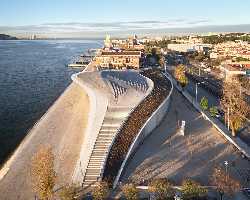 MAAT
Lisbon
MAAT
Lisbon
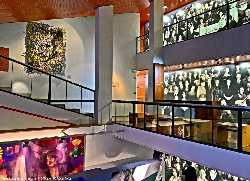 Museu do Fado
Lisbon
Museu do Fado
Lisbon
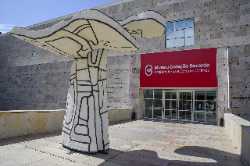 Museu Coleção Berardo
Lisbon
Museu Coleção Berardo
Lisbon
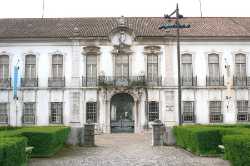 Museu de Lisboa
Lisbon
Museu de Lisboa
Lisbon
 Museu da Marinha
Lisbon
Museu da Marinha
Lisbon
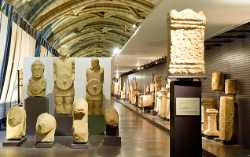 Museu Nacional de Arqueologia
Lisbon
Museu Nacional de Arqueologia
Lisbon
 Museu do Aljube
Lisbon
Museu do Aljube
Lisbon
 Teatro Nacional D. Maria II
Lisbon
Teatro Nacional D. Maria II
Lisbon
 Teatro São Luiz
Lisbon
Teatro São Luiz
Lisbon
 Teatro Tivoli BBVA
Lisbon
Teatro Tivoli BBVA
Lisbon
 Teatro Politeama
Lisbon
Teatro Politeama
Lisbon
 Teatro Aberto
Lisbon
Teatro Aberto
Lisbon
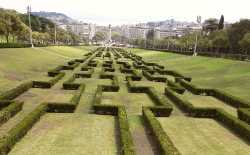 Parque Eduardo VII
Lisbon
Parque Eduardo VII
Lisbon
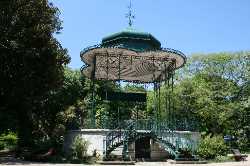 Jardim da Estrela
Lisbon
Jardim da Estrela
Lisbon
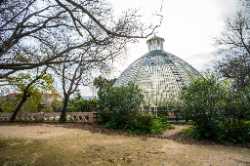 Tapada das Necessidades
Lisbon
Tapada das Necessidades
Lisbon
 Monsanto Forest Park
Lisbon
Monsanto Forest Park
Lisbon
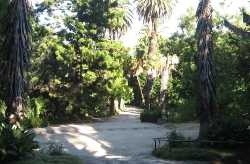 Jardim Botânico da Universidade de Lisboa
Lisbon
Jardim Botânico da Universidade de Lisboa
Lisbon
 Jardim do Príncipe Real
Lisbon
Jardim do Príncipe Real
Lisbon
 Jardim Botânico Tropical
Lisbon
Jardim Botânico Tropical
Lisbon
 Castelo de São Jorge
Lisbon
Castelo de São Jorge
Lisbon
 Torre de Belém
Lisbon
Torre de Belém
Lisbon
 Forte de São Lourenço do Bugio
Lisbon
Forte de São Lourenço do Bugio
Lisbon
 Palácio Nacional da Ajuda
Lisbon
Palácio Nacional da Ajuda
Lisbon
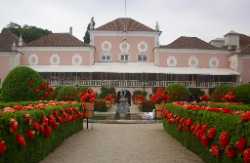 Palácio de Belém
Lisbon
Palácio de Belém
Lisbon
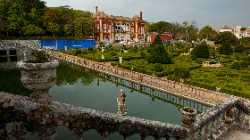 Palácio Fronteira
Lisbon
Palácio Fronteira
Lisbon
 Palácio das Necessidades
Lisbon
Palácio das Necessidades
Lisbon
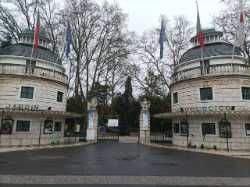 Jardim Zoológico de Lisboa
Lisbon
Jardim Zoológico de Lisboa
Lisbon
 Praça do Comércio
Lisbon
Praça do Comércio
Lisbon
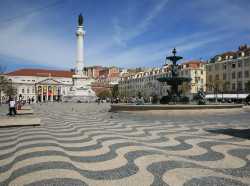 Rossio Square
Lisbon
Rossio Square
Lisbon
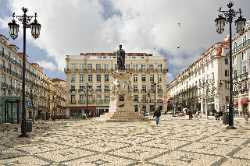 Praça Luís de Camões
Lisbon
Praça Luís de Camões
Lisbon
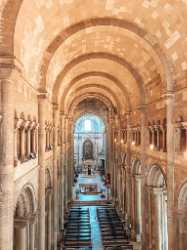 Sé de Lisboa
Lisbon
Sé de Lisboa
Lisbon
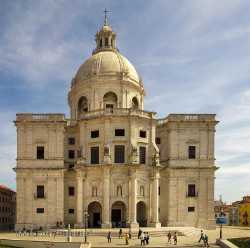 Panteão Nacional
Lisbon
Panteão Nacional
Lisbon
 Igreja de São Roque
Lisbon
Igreja de São Roque
Lisbon
 Mosteiro dos Jerónimos
Lisbon
Mosteiro dos Jerónimos
Lisbon
 Elevador de Santa Justa
Lisbon
Elevador de Santa Justa
Lisbon
 Arco da Rua Augusta
Lisbon
Arco da Rua Augusta
Lisbon
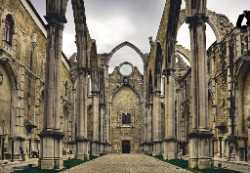 Convento do Carmo
Lisbon
Convento do Carmo
Lisbon
 Mercado de Campo de Ourique
Lisbon
Mercado de Campo de Ourique
Lisbon
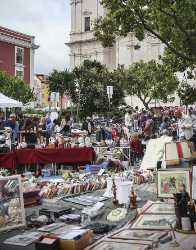 Feira da Ladra
Lisbon
Feira da Ladra
Lisbon
 Mercado de Alvalade Norte
Lisbon
Mercado de Alvalade Norte
Lisbon
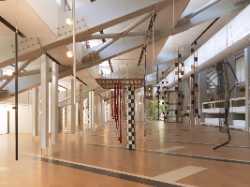 Centro de Arte Moderna Gulbenkian
Lisbon
Centro de Arte Moderna Gulbenkian
Lisbon
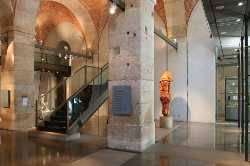 Museu Nacional de Arte Contemporânea
Lisbon
Museu Nacional de Arte Contemporânea
Lisbon
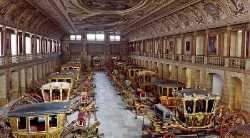 Museu Nacional dos Coches
Lisbon
Museu Nacional dos Coches
Lisbon
 Museu da Marioneta
Lisbon
Museu da Marioneta
Lisbon
 Museu da Farmácia
Lisbon
Museu da Farmácia
Lisbon
 Pavilhão do Conhecimento
Lisbon
Pavilhão do Conhecimento
Lisbon
 Planetário Calouste Gulbenkian
Lisbon
Planetário Calouste Gulbenkian
Lisbon
 Museu da Carris
Lisbon
Museu da Carris
Lisbon
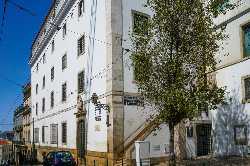 Museu do Aljube Resistência e Liberdade
Lisbon
Museu do Aljube Resistência e Liberdade
Lisbon
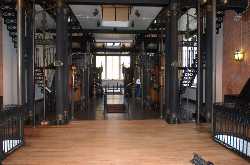 Museu da Água
Lisbon
Museu da Água
Lisbon
 Museu do Oriente
Lisbon
Museu do Oriente
Lisbon
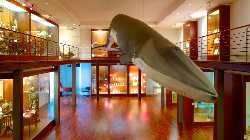 National Museum of Science & Natural History
Lisbon
National Museum of Science & Natural History
Lisbon
 Museu Benfica
Lisbon
Museu Benfica
Lisbon
 Museu do Dinheiro
Lisbon
Museu do Dinheiro
Lisbon
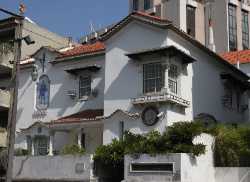 Museu Bordalo Pinheiro
Lisbon
Museu Bordalo Pinheiro
Lisbon
 Casa Fernando Pessoa
Lisbon
Casa Fernando Pessoa
Lisbon
 Museu Medeiros e Almeida
Lisbon
Museu Medeiros e Almeida
Lisbon
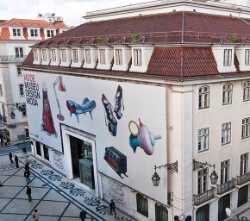 Museu do Design e da Moda
Lisbon
Museu do Design e da Moda
Lisbon
 Galeria Filomena Soares
Lisbon
Galeria Filomena Soares
Lisbon
 Galeria Vera Cortês
Lisbon
Galeria Vera Cortês
Lisbon
 Galeria Cristina Guerra
Lisbon
Galeria Cristina Guerra
Lisbon
 Underdogs Gallery
Lisbon
Underdogs Gallery
Lisbon
 Galeria Pedro Cera
Lisbon
Galeria Pedro Cera
Lisbon
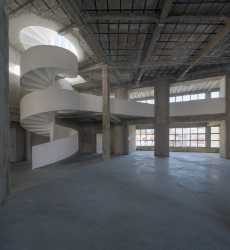 Carpintarias de São Lázaro
Lisbon
Carpintarias de São Lázaro
Lisbon
 Zé dos Bois (ZDB) Gallery
Lisbon
Zé dos Bois (ZDB) Gallery
Lisbon
 Pavilhão Branco
Lisbon
Pavilhão Branco
Lisbon
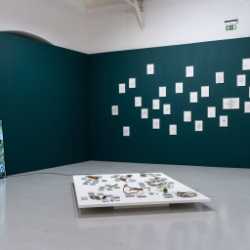 Galeria Avenida da Índia
Lisbon
Galeria Avenida da Índia
Lisbon
 Galeria das Salgadeiras
Lisbon
Galeria das Salgadeiras
Lisbon
 Appleton Square
Lisbon
Appleton Square
Lisbon
 Galeria Beltrão Coelho
Lisbon
Galeria Beltrão Coelho
Lisbon
 Kubikgallery Lisboa
Lisbon
Kubikgallery Lisboa
Lisbon
 ARCOLisboa
Lisbon
ARCOLisboa
Lisbon
 Espaço Cultural Mercês
Lisbon
Espaço Cultural Mercês
Lisbon
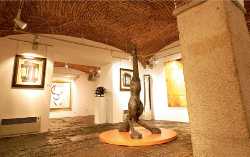 Galeria São Mamede
Lisbon
Galeria São Mamede
Lisbon
 Galeria Ratton
Lisbon
Galeria Ratton
Lisbon
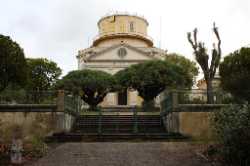 Observatório Astronómico de Lisboa
Lisbon
Observatório Astronómico de Lisboa
Lisbon
 Planetário de Marinha
Lisbon
Planetário de Marinha
Lisbon